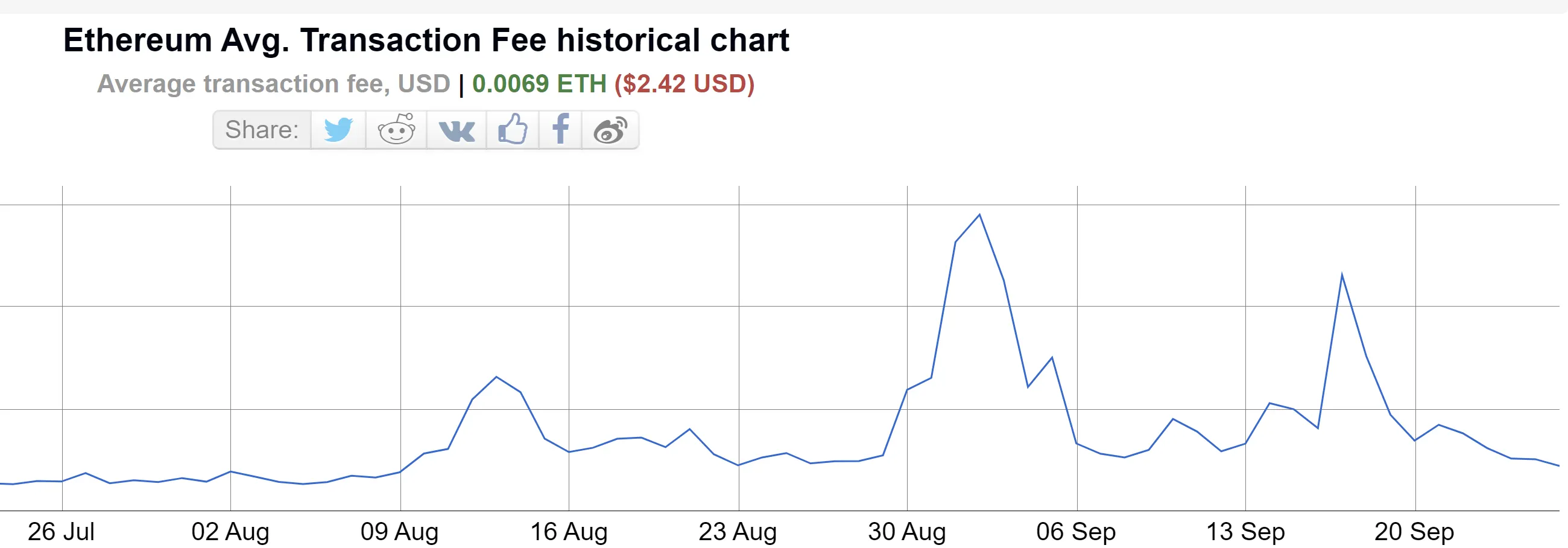In brief
We do the research, you get the alpha!

Disclaimer
The views and opinions expressed by the author are for informational purposes only and do not constitute financial, investment, or other advice.
$64,886.00
1.21%$3,174.12
1.37%$6.94
-0.49%$616.53
1.58%$147.45
-0.89%$1.00
0.01%$3,172.34
1.38%$0.530314
-0.13%$0.152993
0.45%$5.50
-1.68%$0.475393
-0.11%$0.00002624
1.87%$35.94
-2.03%$0.11728
3.28%$64,846.00
1.29%$480.74
0.22%$14.76
1.47%$7.04
1.36%$0.723691
2.08%$13.83
1.58%$84.69
1.17%$7.98
3.28%$5.85
2.01%$1.002
0.16%$0.119051
-5.56%$2.71
-0.58%$26.77
0.40%$9.17
-0.43%$1.14
2.54%$0.128201
2.52%$8.71
2.02%$0.00000794
6.59%$0.114593
-0.53%$6.06
-0.46%$8.41
-0.81%$3.20
-1.08%$53.19
-2.37%$469.25
4.57%$3,116.63
3.08%$2.11
-5.38%$3.02
1.99%$1.10
-1.02%$0.04027501
0.82%$0.120621
-2.40%$2,862.43
-0.24%$2.46
1.54%$0.270003
-0.40%$3,280.61
1.15%$2.46
6.62%$2.35
1.24%$26.85
1.12%$37.28
12.05%$0.999703
0.12%$121.17
1.95%$0.781701
8.74%$2.36
-3.29%$10.98
-0.16%$0.00002826
13.03%$5.57
2.82%$0.00018968
2.38%$2.06
2.06%$3,509.66
1.49%$0.641801
8.64%$1.20
-1.56%$0.04801443
0.84%$0.202702
-5.40%$1.24
-1.54%$109.71
0.93%$3,251.81
1.41%$0.02795934
1.08%$1.063
-2.91%$0.02802022
-4.83%$9.88
-0.10%$0.936185
-0.72%$91.49
0.18%$67.46
-1.21%$0.889266
1.46%$17.87
-0.27%$0.00000128
0.10%$0.955177
-0.72%$3,163.51
1.10%$0.835004
-0.01%$0.66641
21.69%$0.03097191
0.57%$42.72
2.30%$4.86
0.91%$2.22
-0.94%$2.59
32.55%$0.121421
2.61%$7.45
-1.54%$0.468945
0.83%$0.00005229
0.61%$1.076
-5.09%$0.258318
6.43%$7.61
1.23%$12.64
-4.21%$1.027
1.38%$3.00
4.88%$0.8517
3.74%$10.09
1.68%$4.89
-2.14%$3.03
-6.23%$0.868534
-0.54%$16.46
0.45%$0.618438
-0.59%$0.01914935
-0.28%$43.81
-1.61%$174.55
-1.13%$1.21
-1.22%$0.471155
1.46%$336.69
-0.84%$1.28
2.25%$0.01815917
-4.21%$0.728128
-1.48%$13.74
0.98%$3,142.67
0.69%$0.120378
5.66%$0.242617
1.27%$0.680658
-3.25%$0.199455
0.89%$2.84
-3.27%$0.985816
0.50%$1.12
-6.59%$1.26
0.71%$2.23
-0.68%$0.102271
2.66%$3,295.43
-0.04%$172.93
-1.74%$17.73
-0.61%$1.00
0.21%$0.00000031
-1.33%$3,166.74
1.15%$0.00010998
4.67%$0.388
1.67%$98.63
0.52%$0.01141799
5.87%$3.84
3.86%$0.953894
0.19%$0.39511
-2.10%$1.74
-1.50%$0.109591
-1.67%$1.46
0.10%$0.3288
0.71%$34.91
-2.05%$0.06397
3.05%$3.63
-1.97%$0.734854
8.82%$0.971386
-1.15%$3,386.02
1.47%$6.03
-1.85%$1.88
0.04%$0.00169237
0.88%$2,330.71
0.61%$0.00619462
-7.59%$0.03910794
-1.94%$0.051947
-0.31%$0.054041
7.70%$0.395326
3.21%$0.445911
1.33%$3,443.05
1.60%$1.001
0.12%$0.435682
-0.56%$5.05
1.01%$0.02977537
3.09%$0.058028
-0.89%$0.340704
2.32%$0.094751
-1.20%$0.251917
1.68%$0.03524779
4.05%$0.00271788
4.33%$0.00000049
0.81%$15.09
6.01%$0.02613892
1.83%$2.20
3.58%$1.84
1.29%$14.80
0.14%$1.10
1.28%$4.31
-7.24%$0.841195
0.50%$0.528895
1.88%$22.04
-3.11%$0.979061
-0.92%$0.641093
1.96%$0.007732
2.92%$0.600125
3.70%$0.441662
13.40%$0.41086
-2.23%$2,324.41
1.07%$1.63
-0.79%$3.69
0.71%$4.05
1.03%$0.00757163
0.91%$0.613499
-11.49%$3.90
1.82%$0.393546
-0.09%$0.262732
-0.79%$3,255.89
1.35%$3.22
0.32%$0.839279
1.23%$56.56
-0.35%$0.511158
-1.59%$0.945549
-1.67%$63.87
1.56%$1,301.72
1.30%$0.03175269
3.01%$65.17
0.27%$0.02934133
1.96%$22.85
-0.12%$30.83
2.10%$0.402475
-4.24%$4.54
-1.36%$5.49
2.68%$0.458501
2.46%$0.0393113
-1.85%$0.128781
1.68%$23.45
2.12%$3.84
1.22%$0.70199
-3.06%$3.54
0.79%$0.03506035
0.31%$0.267675
1.39%$0.03356578
0.29%$0.952241
0.66%$0.760956
-0.16%$0.00
23.34%$0.00639636
-0.14%$8.05
1.16%$45.23
1.58%$30.86
2.71%$1.00
0.16%$1.26
1.93%$2.06
23.76%$2.53
3.13%$0.921157
-4.14%$27.17
-2.16%$0.329196
1.08%$35.59
-4.80%$3.30
-8.24%$0.00364026
0.55%$0.160196
3.12%$30.22
1.90%$41.04
-1.75%$0.267953
-0.23%$65.73
0.94%$0.187489
11.95%$0.02138688
0.61%$0.323188
2.71%$27.64
3.68%
The average cost of processing an Ethereum transaction has fallen to a 49-day lull, marking an end to a spell of super-high transaction costs that made the network prohibitively expensive to use.
Yesterday, Ethereum’s average transaction fee was $2.248, according to data from BitInfoCharts. It touched $2.28—four cents higher—on August 23, but hasn’t slipped below $2.248 since August 9, when the cost of the average Ethereum transaction was $1.94.

Just ten days ago, the average cost of a single Ethereum transaction hit $11.6; on September 2, it was $14.6. These are the highest average transaction fees...ever. Only in 2018 did fees reach anything close to these levels: $5.5 on July 2.
Fees increase when there is more demand to process transactions than there are miners or blockchain space to process them. It is a benchmark of increased activity. That they have declined suggests a decrease in activity.
One reason for this summer’s steep fees may have been this summer’s rise of DeFi, or decentralized finance. DeFi refers to a slew of non-custodial financial products, among them DeFi lending protocols, decentralized stablecoins and synthetic assets.
Lots of money has poured into these protocols in the past few months. Almost $11 billion is locked up in DeFi smart contracts today, according to metrics site DeFi Pulse; in June, just $1 billion was locked up.
The biggest DeFi smart contracts are all housed on the Ethereum blockchain. But Ethereum, which can only process about 14 transactions per second, has struggled to keep up.
That fees are now decreasing could mean that DeFi activity is also waning. It could also mean that people are starting to move to other blockchains. It could also mean that people are relying on layer-two solutions—software built atop the Ethereum blockchain to make transactions cheaper or faster—or DeFi smart contracts are becoming more efficient or simply placing fewer trades.
Whatever the reason, these reduced fees are surely a welcome to traders who have been priced out of the nascent DeFi market.
Disclaimer
The views and opinions expressed by the author are for informational purposes only and do not constitute financial, investment, or other advice.




